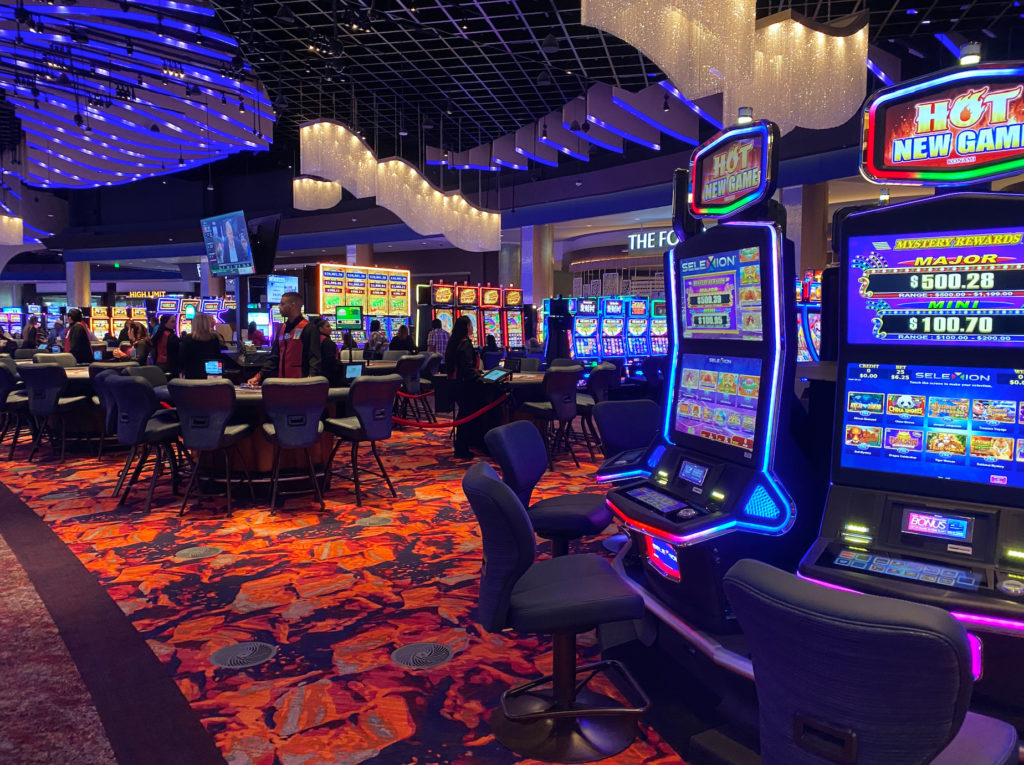
Casino games have long been a captivating entertainment option, drawing numerous of players from varied cultures around the globe. From the lively casinos of Vegas to the busy gambling halls of the Cotai Strip, these games serve as a bridge that connects people across various backgrounds. The allure of luck, tactics, and uncertainty entices not only those looking to win money but also those seeking a sense of community.
The influence of casino games extends well beyond the gaming floor. They often represent the values and traditions of the cultures in which they prosper. Games such as seven-card stud, blackjack, and the wheel game have integrated into the tapestry of cultural phenomena, influencing multiple fields from films to style. As we explore this intriguing intersection of gambling and society, we can gain insights into how casino games shape and are affected by the environment surrounding us.
Historical Development of Gaming Activities
The roots of gambling activities can be followed back to old civilizations, where gambling in different forms was extensively practiced. In Ancient China, around 2300 BC, a type of luck game known as Keno was common, while in old the Roman Empire, soldiers would often wager on the results of their matches. The notion of using luck for amusement and income progressed over the ages, leading to the establishment of more formal games. By the late Middle Ages, betting houses started to appear in Europe, notably in Italy, which introduced early incarnations of well-liked activities still played today.
As gambling increased popularity in Europe, the 17th and 18th centuries saw the appearance of casinos as dedicated venues for gambling. The earliest official gaming venue, the Ridotto, was set up in the Venetian city in 1638, offering games like the game of Baccarat and Faro. This time marked a major turning point, as casinos began to attract not just the elite but also the expanding middle class. The complexity of games increased, leading to the introduction of new rules and versions that enhanced the experience of players.
In the 19th century, the industrial revolution and shifts in societal standards further transformed the terrain of gambling games. The introduction of the game of roulette and contemporary one-armed bandits attracted a broader crowd, and gaming houses became seen as legitimate recreation. This time witnessed the globalization of casino activities, as casinos extended from European nations to the Americas, culminating in the establishment of the famous Las Vegas Boulevard in the 1900s. The progress of gambling activities has continued into the present day, integrating technology and online platforms, making them open to a worldwide population.
### Cultural Relevance across Different Cultures
Casino activities have deep-rooted social significance in numerous societies throughout the world. In Las Vegas, the very core of the urban landscape is woven around gambling establishments, where gaming is not just a hobby but a fundamental aspect of social engagement and community life. The vivid lights and dynamic atmosphere attract millions, showcasing how casino games can impact local economical structures and cultural identities. This surrounding transforms the notion of relaxation into an engaging experience that affects fashion, melodies, and even film.
On the other hand, some communities treat wagering with greater care, viewing it through the lens of morality and customs. For instance, in numerous Asian societies, games like Mahjong and Pai Gow Poker are full of history and carry significant social implications. These games are often played during get-togethers and festivities, fostering community bonds and solidifying familial ties. The act of engaging in these games goes beyond mere leisure, reflecting ethics such as deference to seniors and the significance of shared enjoyment.
At the same time, in European countries such as Monaco and Italy, games of chance serve as symbols of luxury and sophistication. The stylish atmosphere of these locations attracts both visitors and native inhabitants, reinforcing a sense of status and exclusivity. The art of Texas Hold’em and the strategic features of games like the game of baccarat are esteemed, influencing interpersonal interactions and establishing an attraction that fascinates a varied audience. This emphasizes how casino games can both mirror and influence cultural attitudes towards hazard, gain, and community interaction.
Economic Impact and Tourism
Casino games play a important role in the financial context of many regions, particularly those that depend significantly on tourism. The revenue produced from gambling establishments fuels local financial systems, creating jobs not only within the casinos but also but also in connected industries such as hospitality, dining, and entertainment. This surge of tourists, drawn by the attraction of gambling and the overall casino experience, stimulates expenditure across multiple businesses, contributing to the economic vitality of the area.
The presence of casinos often leads to the construction of infrastructure, including lodging, transportation systems, and recreational facilities. These improvements are essential in enhancing the overall visitor satisfaction, making locations more appealing to visitors. Additionally, many casinos contribute in local communities through sponsorship of events and philanthropic initiatives, further integrating themselves into the community structure of the locality. Such contribution not only supports economic growth but also cultivates a positive reputation of the gambling sector. slots not on GamStop
In addition, the global popularity of casino games drives competitive tourism, with locations vying to attract gamblers from around the world. Iconic locations like Las Vegas and Macau have become synonymous with casino culture, drawing millions annually. This competitive edge encourages creativity and diversification within the gambling sector, influencing developments in leisure and hospitality that resonate beyond their limits. The consequences of this visitor influx extend far, impacting local economies and cultural interactions on a global scale.